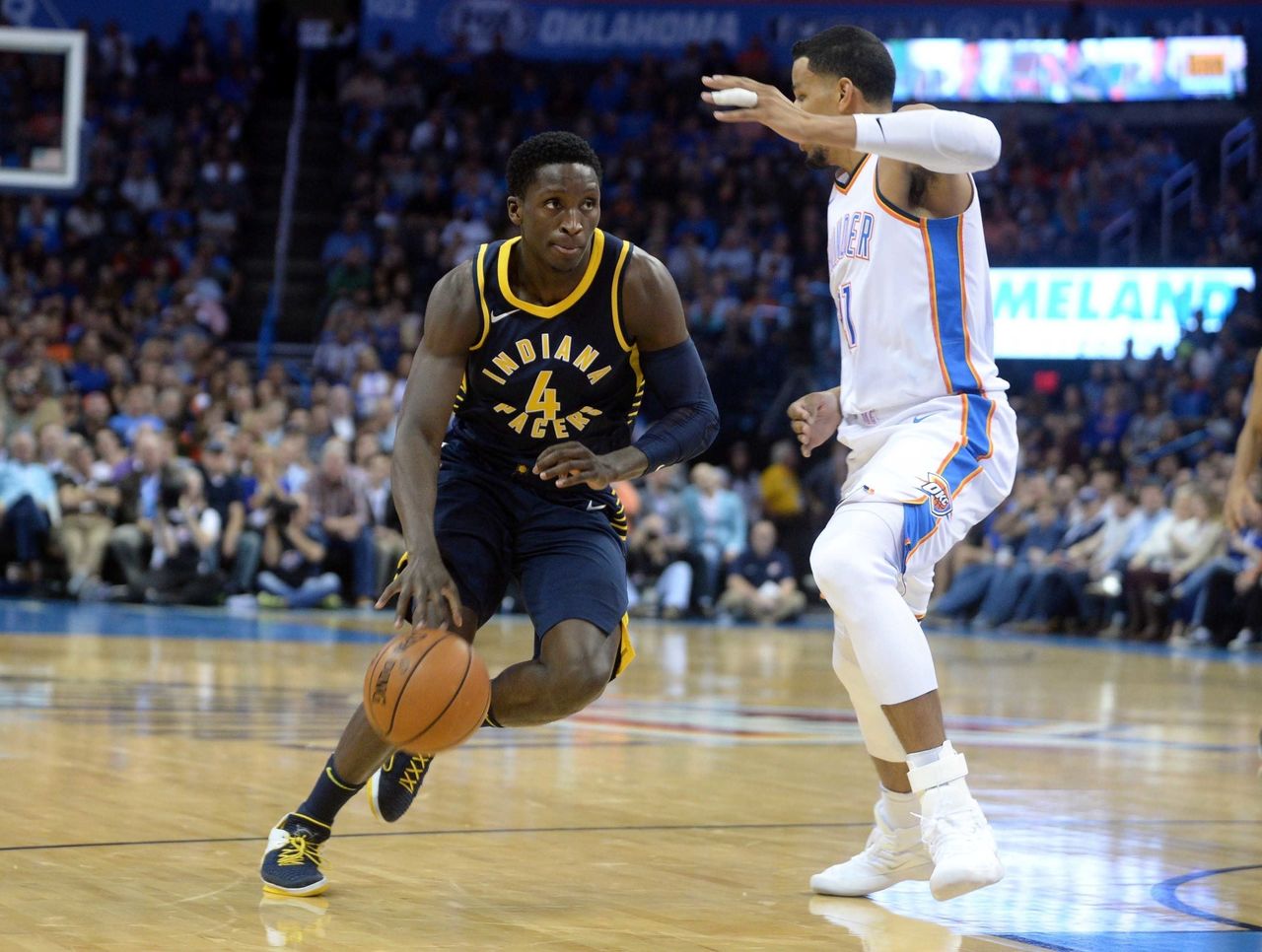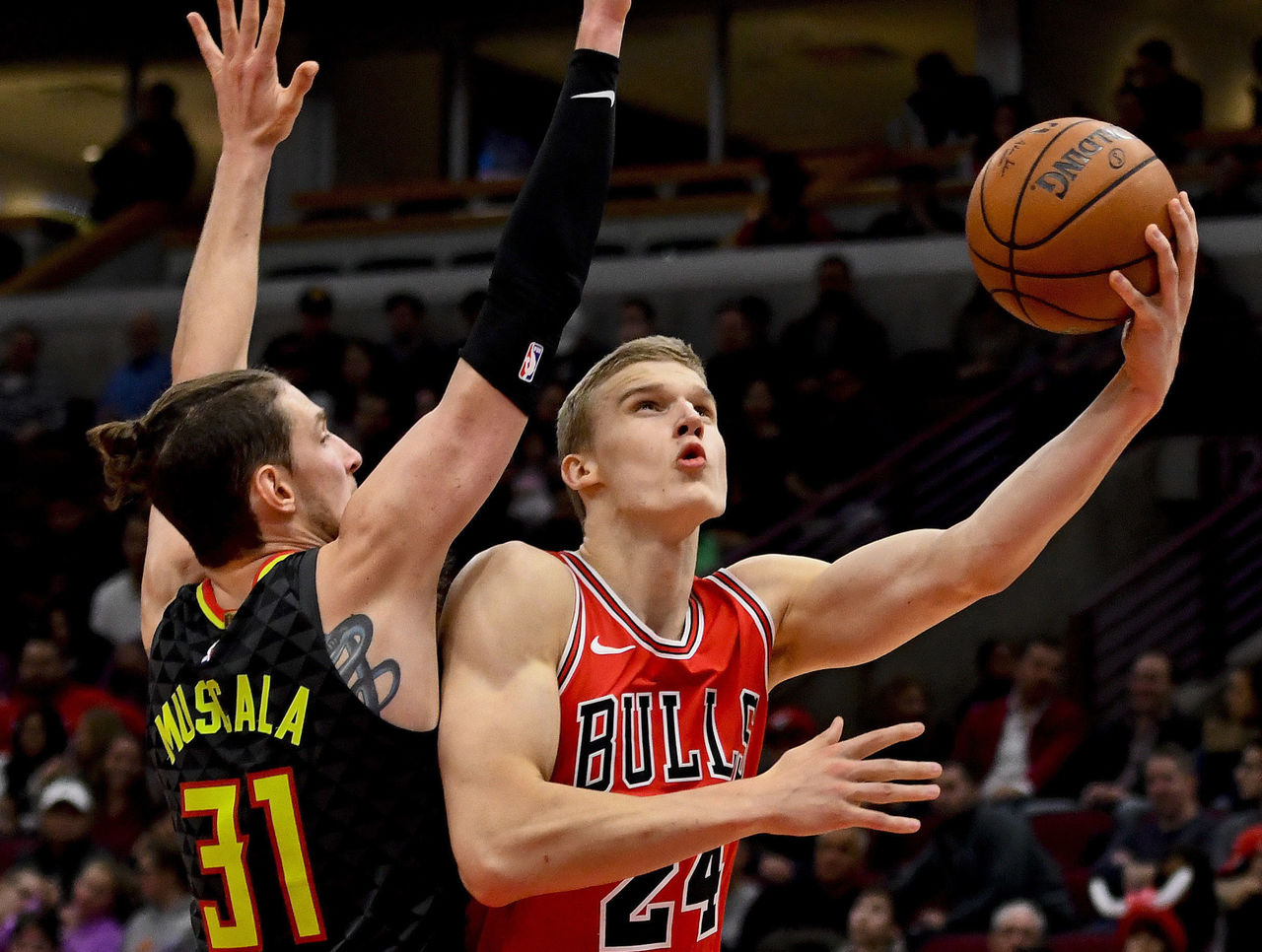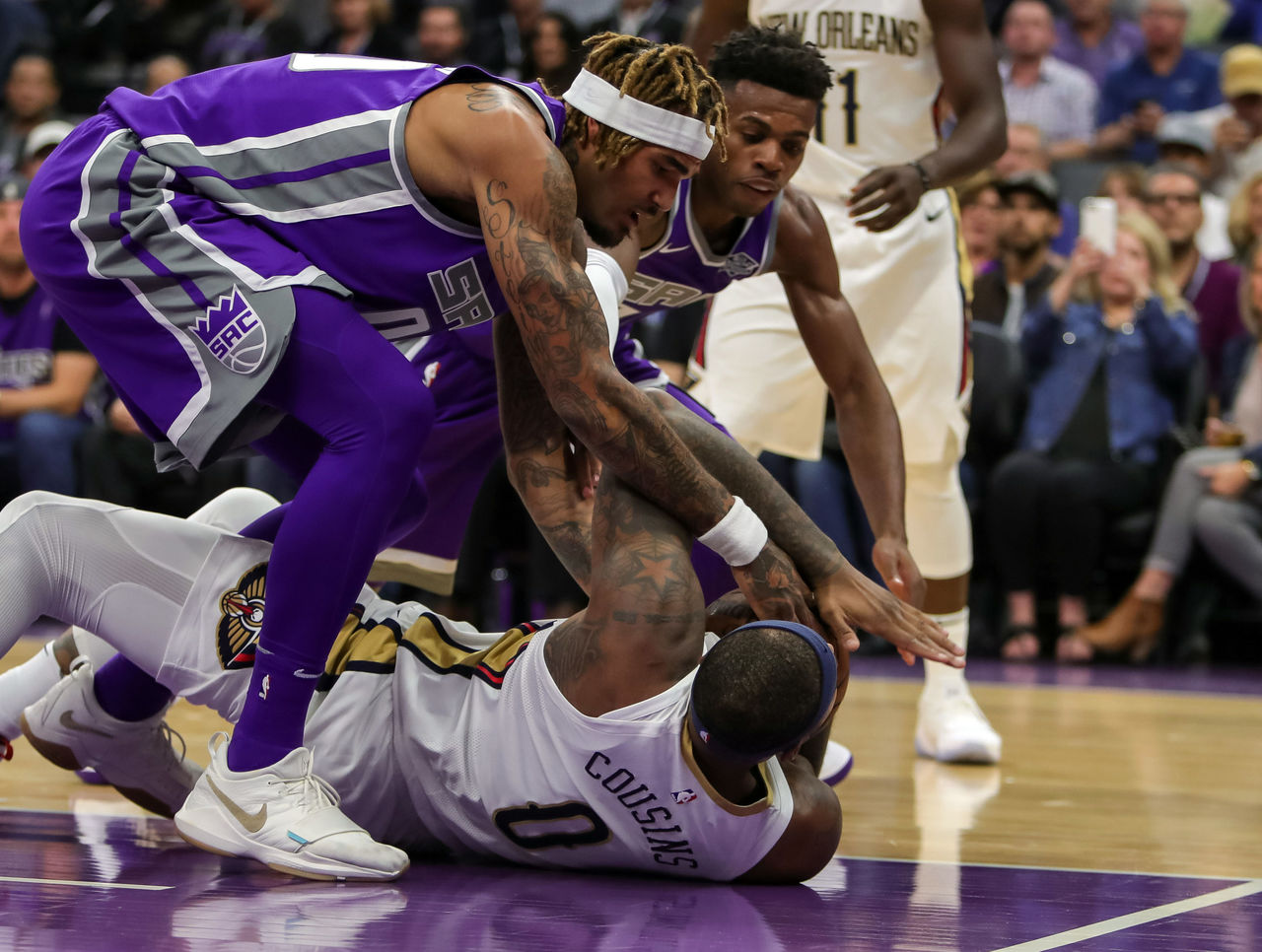Is it possible those terrible trade returns aren't actually terrible?
Like most everything in this age of information and impatience and 24-hour news cycles, NBA analysis skews reactionary and immediate. Recency rules the day. Rarely is this more evident than when a major trade goes down, and within minutes of the Woj bomb dropping, its implications are unpacked and nitpicked to death.
Sometimes the immediate reactions prove correct, but sometimes time and circumstance change the accounting significantly. Consider the 2008 Los Angeles Lakers-Memphis Grizzlies deal - aka the Gasol brothers swap - which was perceived at the time as being so lopsided in the Lakers' favor that typically even-keeled Spurs coach Gregg Popovich called it "beyond comprehension," and suggested the league should have "a trade committee that can scratch all trades that make no sense." In hindsight, though, it's tough to imagine the Grizzlies getting a much better return for Pau Gasol than they did in his brother Marc.
The fact is, it's tough to trade away a superstar and come out ahead, especially in the short term. In the past few months, a handful of landscape-altering trades have rocked the league, and the returns in nearly all of them have been mocked, derided, and excoriated. But have two weeks' worth of NBA games changed the outlook of those trades for the perceived losers? Let's give them a slightly less reactionary, slightly less immediate assessment.
Indiana Pacers

Traded: Paul George
Received: Victor Oladipo, Domantas Sabonis
This trade was a stunner, because the Thunder hadn't even really surfaced in rumors as a viable trade partner, given their dearth of assets compared to other suitors. The Pacers had no leverage in trade talks for George because word was already out that he'd be splitting in free agency a year later, but failing to come away with a first-round draft pick, or anything that at the time resembled a foundational building block, made it seem like a needlessly desperate move all the same.
Not so fast. Oladipo has been lighting it up for the Pacers; raining threes, going bananas on the break (he's second in the NBA with 8.3 transition points per game), barreling to the rim, parading to the free-throw line, hitting game-winners, and generally scoring as efficiently as almost anyone in the league. He's raised his field-goal and 3-point percentages every year, and taking on a significantly higher workload in Indiana (his 31.5-percent usage rate represents a 10-percent spike from last season) hasn't deterred that progress.
Then there's Sabonis, who looked lost and miscast as a floor-spacing spot-up shooter for most of his rookie season with the Thunder, but is flourishing with the Pacers as a roll man, cutter, offensive-rebound hunter, and all-around pest in the post.
At 21 and 25, with three and four years of team control left on their contracts, Sabonis and Oladipo should be strong complements to Myles Turner for a long time. And while neither looks like a future lockdown defender, that trio gives the Pacers what could be a really exciting core moving forward. In hindsight, getting them both for one year of George looks downright prescient.
Chicago Bulls

Traded: Jimmy Butler, No. 16 pick (Justin Patton)
Received: Zach LaVine, Kris Dunn, No. 7 pick (Lauri Markkanen)
This was even more baffling than the George trade, because Butler still had two years left on his contract, and hadn't asked out or even suggested he'd leave as a free agent in 2019. And as if the two fundamentally flawed prospects the Bulls nabbed in the deal weren't underwhelming enough, they caved and included their own first-rounder instead of demanding the Timberwolves' pick outright. But, well, it might still somehow work out OK for the Bulls.
LaVine and Dunn are injured and haven't played, so the jury's out on that portion of the trade, but Markkanen has looked extremely promising in his first few games. Defenses are already respecting his shot - he's hitting 41.7 percent from deep on 7.2 attempts per game - and he's looked comfortable putting the ball on the floor when they crowd him. He's pulling in nearly 10 rebounds a game. The Bulls have been 17.5 points per 100 possessions (!) better with him on the floor. He has good instincts, good hands, and a soft touch, and already looks like he'll be a dangerous scorer for years to come. It's too early to tell whether he can be more than that, but getting what could be seven years of dynamic offensive production from the 20-year-old isn't a bad trade-off for two years of Butler, and that's before factoring in whatever they may get from LaVine and Dunn.
Besides, in the final season before draft reform kicks in and flattens the lottery odds of the league's worst teams, being as bad as possible should pay dividends for Chicago.
Sacramento Kings

Traded: DeMarcus Cousins
Received: Buddy Hield, No. 10 pick (traded for Nos. 15, 20: Justin Jackson, Harry Giles)
This trade ... OK, this trade still kind of bites, if only because Cousins seemed ready to re-sign with the Kings on a long-term deal, and there was no reason for them to hit the panic button at last season's deadline. There's an opportunity cost that needs to be taken into account with these deals, and even given the apparently lukewarm market for Cousins, it's hard to believe they couldn't fetch a better return.
But also, are the Kings really that much worse off now than they were before the trade? Ending their playoff drought was a long-shot proposition anyway; at least now they're on a clear rebuilding timeline, with some decent early returns on their future investments. Hield mostly looks like he's still catching up to the speed of the NBA game, and doesn't seem to know what to do when he's off-ball, but he's teased enough potential as a pullup shooter - and, to a lesser extent, a pick-and-roll ball-handler - to suggest he can be a long-term piece.
Meanwhile, turning the 10th pick into Jackson and Giles was a nice piece of business. Giles is a long-term project who's currently recovering from surgeries on both knees, but Jackson has flashed fluidity and confidence, and should have the makings of a high-end 3-and-D wing once he fills out his frame. Plus, Cousins' exit has allowed young bigs Willie Cauley-Stein and Skal Labissiere to spread their wings, while De'Aaron Fox - the fifth overall pick they landed in part because of their post-Cousins tank-a-thon - looks like a star in the making. There still isn't much hope for them in the foreseeable future, but the horizon looks a bit brighter than it did a few months ago.